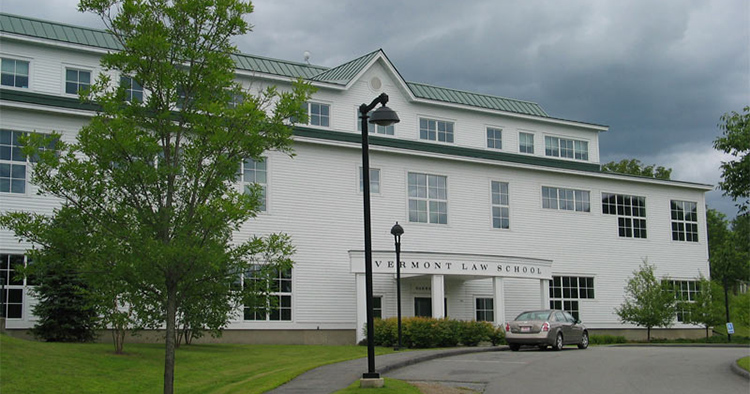After tenure removals, Vermont Law School is now on sanction list of professors' organization

Vermont Law School's Oakes Hall. Photo by Jared C. Benedict, via Wikimedia Commons.
Vermont Law School has been placed on the American Association of University Professors’ sanction list, a year after the private, stand-alone school stripped 14 professors of tenure.
The decision was made by a member vote Saturday at the AAUP’s annual meeting, Inside Higher Ed reports. Being placed on the AAUP’s censure or sanction list is a “symbolic” action, according to the article, but universities on either list usually try to get removed.
Vermont Law faculty in 2018 sent a letter to the AAUP, questioning whether the law school followed the organization’s regulations when it removed tenure for the 14 professors. The law school maintains that it needed to quickly decide how to close a $2 million budget deficit, and faculty participation was encouraged.
Last month an AAUP investigating committee report found that the law school’s tenure decision violated a regulation regarding shared governance. The report found that while the law school did face many financial hurdles, neither the tenure and retention nor curriculum committees were consulted about faculty restructuring, and no special committee was formed to address faculty’s collective position on the situation.
The AAUP is a membership organization, and its regulations are similar to the American Bar Association’s Model Rules of Professional Conduct, in that schools can choose if they want to adopt them, Gregory Scholtz, who directs the AAUP’s department of academic freedom, tenure and governance, told the ABA Journal in 2018.
“AAUP can’t do anything to Vermont Law; they are not an accrediting body, but this decision can impact future faculty hiring for sure—the irony being VLS likely doesn’t want near-future hires; they have what would appear to be a significant need to control their budget,” Mike Spivey, a former law school administrator who now does consulting work, told the ABA Journal in an email.
According to Spivey, budget problems for universities and law schools are likely to get worse in the next decade because there’s been an overall decline in United States birthrates since the start of the Great Recession.
“Law schools specifically are tuition-driven and not endowment protected. What’s the single biggest budget line item by far? Faculty salary,” Spivey said. “So this exact scenario may hit many law schools, or at least barring some major change in how universities and law schools are governed, in the not too distant future.”
Thomas McHenry, the law school’s dean, in a statement wrote that the law school is disappointed by the sanction list decision.
“It is important to remember that the AAUP is an advocacy organization and is not involved in the accreditation of Vermont Law School. VLS nevertheless continues to abide by the AAUP’s stated principles of shared faculty governance and academic freedom,” McHenry wrote.
In terms of ABA accreditation, Standard 405 requires that law schools have a system of tenure, but it does not specifically address the required scope of a tenure system.
A former partner at Gibson, Dunn & Crutcher, McHenry joined the law school as its dean in 2017. “Only a few months later,” according to the AAUP investigating committee report, McHenry “stated that the law school would need to take immediate measures to address a budget deficit so severe that it threatened the institution’s very existence.”



